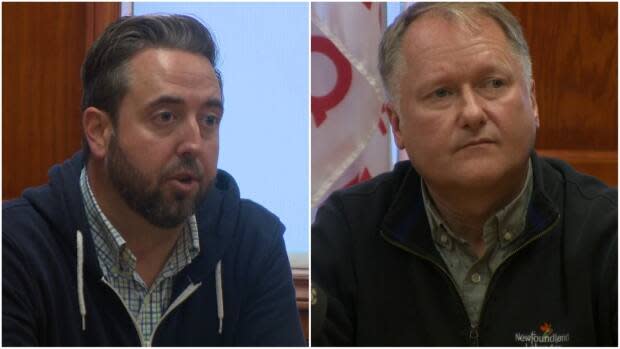Expect more storms like Fiona as the climate continues to change, says MUN climatologist


A climatologist at Memorial University says post-tropical storm Fiona is the latest in a long list of wakeup calls for Canada — and Newfoundland and Labrador — when it comes to climate change.
While Fiona was impressive to watch from a meteorological perspective, said Joel Finnis on Wednesday, it's no longer necessary to question whether such a storm is attributable to the changing climate.
"This is a weather event that 30, 40 years ago, would have been extremely unlikely. Climate change comes along and it shifts the possibilities to a point where this is no longer an extremely unlikely storm," he said.
If the planet and oceans continue to warm, Finnis said, storms like Fiona will become more common — to the point where devastating storms are no longer once in a lifetime, he said.
"It's frustrating to see how many wakeup calls are being ignored. It's like we've been hitting the snooze button for 25-odd years," Finnis said.
Powerful winds and record high storm surges separated Fiona from previous storms in Newfoundland. Waves between 12 and 16 metres and storm surges led to nearly 100 homes being damaged or lost entirely.
Last week's storm isn't the first warning sign Newfoundland and Labrador has seen in recent years — or even the first warning of this year.
Finnis pointed to Hurricane Igor in 2010, flooding caused by the rainfall of Hurricane Earl earlier this month and an August heat wave that helped fuel multiple forest fires across central Newfoundland.

"It's been wakeup call after wakeup call after wakeup call," he said. "The [events] that I just mentioned have caused problems, have caused damage, but they still dwindle in comparison to some of the other wakeup calls we've been having which are frankly taking thousands of lives."
Finnis said thinking about one's own consumption and carbon footprint is only a small piece of the puzzle, Finnis said —it's more important to make sure elected officials are being held accountable and taking action on climate change.
Provincial Transportation and Infrastructure Elvis Loveless said Wednesday climate change is considered at all levels of government, especially when it comes to planning for the future.
"That climate change lens is certainly applied to all of our conversations and all of our planning. Because as we see, it's a reality," said Loveless.

Andrew Parsons, who represents some of the hardest-hit areas as the MHA for Burgeo-La Poile, says the changing climate will impact the rebuilding process — if people choose to rebuild there at all.
"Everyone recognizes the fact that we have to plan ahead," Parsons said. "In many cases, I don't think there's a desire to go back to where they were."

 Yahoo Movies
Yahoo Movies 